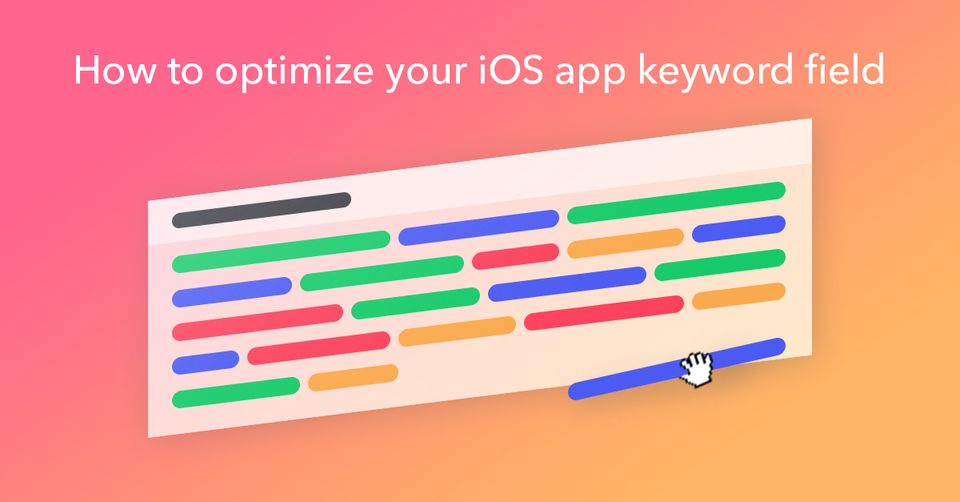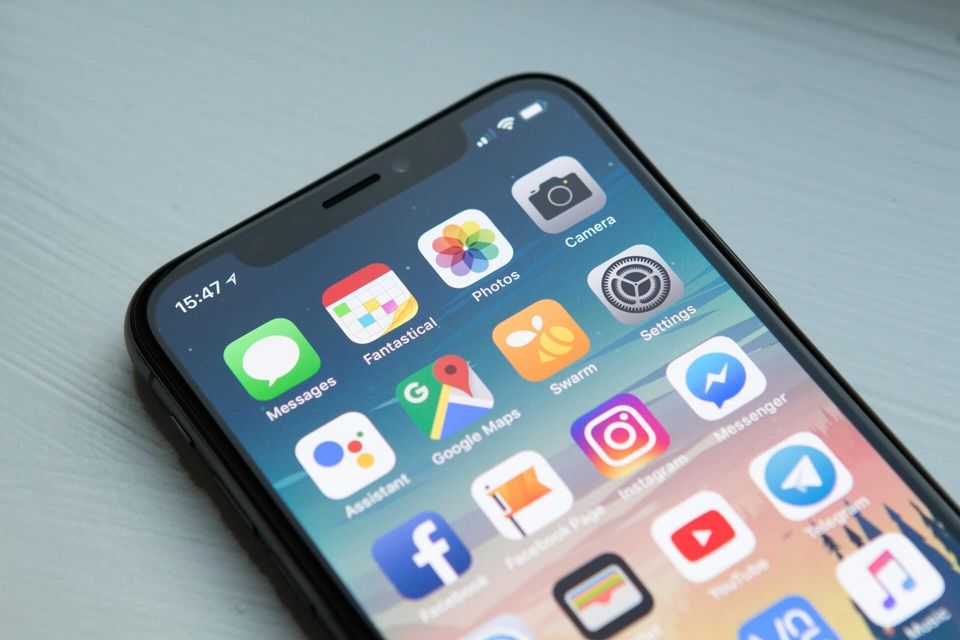When you upload an iOS or Mac application for review in the App Store Apple will ask you to provide a list of keywords that describe the application. Apple makes use of this list to determine the time to include your app in search results, and also where to show it. Though it's not the only method to show up in results The keywords you choose to submit will be given a lot of importance in your ASO therefore it's crucial to fill the most keywords you can.
The text box, however, can only handle 100 characters. Characters, not even words! It's not enough to describe your application. There are ways to make this list more efficient so you can benefit from features of the Apple search engine which aren't widely advertised, and squeeze more value from the 100 characters.
Optimizing Keywords for App Store Connect
Under the underneath under the hood, under the hood, App Store is powered by Full Text Search, which uses sophisticated search match to convert those keywords you supply into search terms that users input in the App Store. It's a smart approach. The engine's intelligence provides us with a variety of opportunities to gain more keywords than the limiting 100 characters available on first sight.
A lot of developers start by entering "complete" search terms into the text box. To give you an example this is an example of an unoptimized list of keywords for a shopping app might appear like:
shopping, shoes, sneaker, sneakers, shop, shopping app, purchase shoes, purchase accessories, shoes, shop shoes
Let's explore all the ways that this list can be improved to include more words.
1. Convert Search Terms into single words and Remove Duplication
One of the primary optimizations is the way that the engine takes care of creating keywords from your search terms. It means that, for example, you do not have to type in all search terms, but rather the parts. For instance, the phrase "purchase shoes" and be divided between "purchase" and "shoes". Apple will automatically generate the mix "purchase shoes" for you.
After you have split all your terms, write them all , and then eliminate any duplicates. Apple does not assign more weight to words that have repeated meanings They're simply not considered important. This is where you will get the most value for your money. Let's look at what it looks like in our hypothetical scenario:
shopping, shoes, sneakers, sneaker, app, shop, purchase, accessories
The ranges from 100 characters from 100 characters to just 64! Nearly a half. You now have more space to add more keywords and combinations that you've not ever seen before.
However, we're planning to improve this even more.
2. Remove All Spaces
There is no human reading this list, therefore you can eliminate any spaces that appear between words to save yourself some characters. If the keywords are separated using the letter "," Apple will recognize them as distinct keywords. The space you save could easily be converted into the addition of one or more keywords.
shopping,shoes,sneakers,sneaker,app,shop,purchase,accessories
In our case by removing all spaces following the commas helped save seven characters, which brings the character count to 56. There's plenty to be squeezed out.
Accelerate Your Downloads
Find new keywords, track rankings, and spy on competitors. There are many keyword tools, use one of them.
3. Don't Pluralize Words
Apple's algorithm is advanced enough to deal with pluralization of keywords, and there's no reason not to include that word in your search list. In our case, that means we can get rid of "sneakers," which is essentially "sneakers", leaving us with another eight characters and making our total character count to 48.
Almost done!
4. Eliminate Stop Words
Apple removes certain words because they're too generic. Keywords such as "app", "the" or "most" (full list below) are all considered "stop words" by Apple and are completely ignored. In our case, we have included "app" as a word "app". Eliminating it will spare us three characters more and reduce our character count to 45. We started at 100. It's less than half.
5. Don't Include Your App or Company Name or Category Name
In addition to the keyword list on App Store Connect Apple will also look at your name of the app, developer's name, as well as the category the app is in when determining keywords for your application. This is why you don't need to include all of these keywords in your list of keywords which means you can use a few additional characters and not losing any performance.
6. Simplify Complicated Words
Google searches within the App Store are typically brief users do not desire to enter (or consider) complex terms. If you've got words that are difficult (and likely long) consider taking the time to search for alternative words that are more informal simple, short and less complicated in general.
7. Use All 100 Characters
Once you've optimized your keyword list, you'll have a lot of characters you can add. Do it. Spend the time and make use of all these characters, even they aren't pertinent or have a lot in common with. The algorithm of Apple will take into account more when it analyzes your keywords list, giving the chance to be discovered.
8. Bonus: Put Your Most Important Keywords Early
Similar to the app's name and subtitle, the place you include the keyword in the list is crucial. The algorithm is more concerned with keywords at the beginning of the list, vs. those towards the close. This is why your list should start with the most significant keywords and finish using keywords that're not competitive or targeted at long-tail keywords.
Optimizing your keyword list for App Store Connect may seem daunting, but once you know the basics it shouldn't be too hard and will provide noticeable results quickly. We highly recommend spending a few minutes doing it.
English Stop Words for ASO
Here's a full list of words that Apple does not recognize. Include any of these words in your search terms list within App Store Connect is an inefficient use of space So, make sure to eliminate them.
a, about, above, after, again, against, all, am, an, and, any, app, are, aren't, as, at, be, because, been, before, being, below, between, both, but, by, can't, cannot, could, couldn't, did, didn't, do, does, doesn't, doing, don't, down, during, each, few, for, from, further, had, hadn't, has, hasn't, have, haven't, having, he, he'd, he'll, he's, her, here, here's, hers, herself, him, himself, his, how, how's, i, i'd, i'll, i'm, i've, if, in, into, is, isn't, it, it's, its, itself, let's, me, more, most, mustn't, my, myself, no, nor, not, of, off, on, once, only, or, other, ought, our, ours, ourselves, out, over, own, same, shan't, she, she'd, she'll, she's, should, shouldn't, so, some, such, than, that, that's, the, their, theirs, them, themselves, then, there, there's, these, they, they'd, they'll, they're, they've, this, those, through, to, too, under, until, up, very, was, wasn't, we, we'd, we'll, we're, we've, were, weren't, what, what's, when, when's, where, where's, which, while, who, who's, whom, why, why's, with, won't, would, wouldn't, you, you'd, you'll, you're, you've, your, yours, yourself, yourselves





